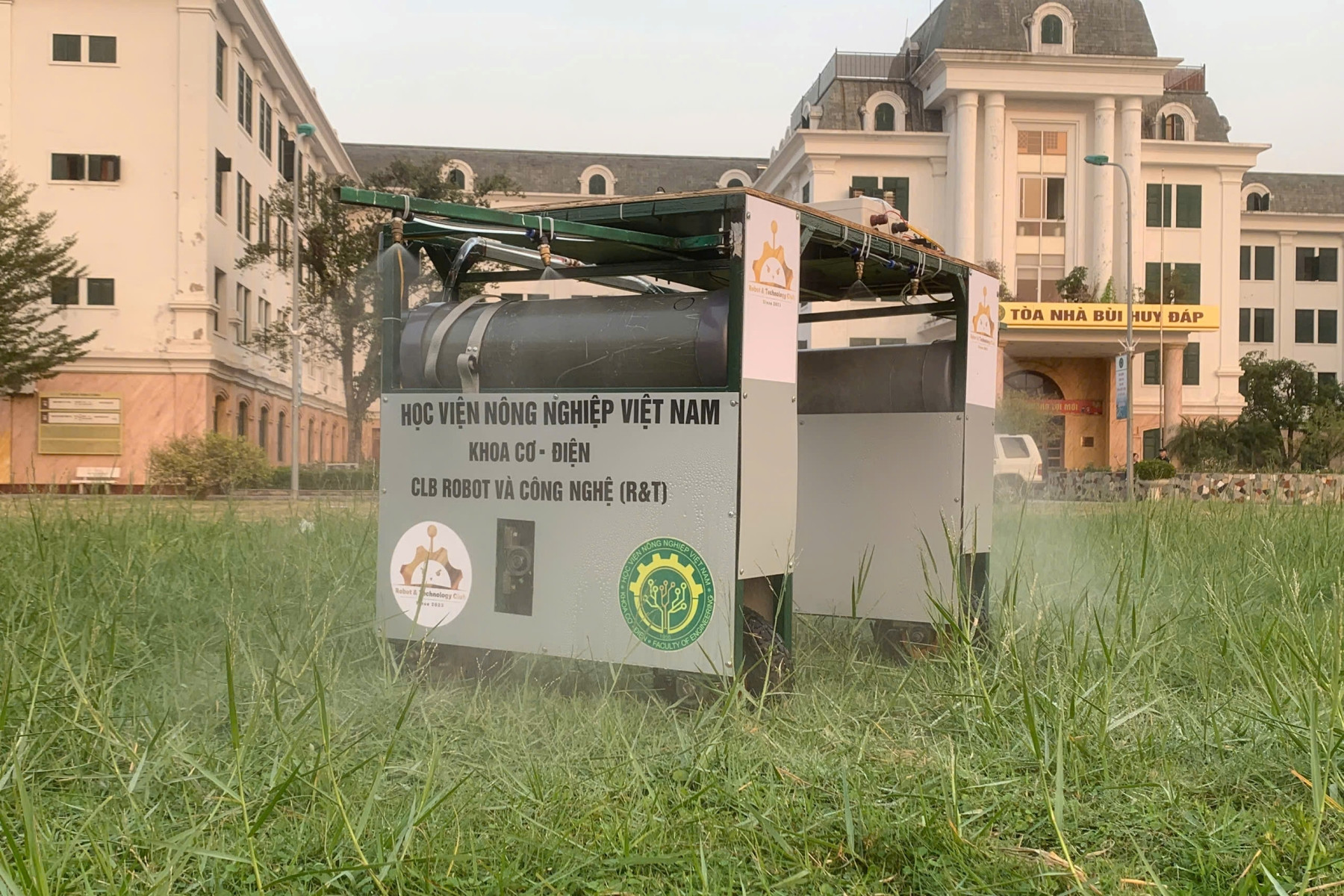
The robot developed by a group of students from the Vietnam Academy of Agriculture has won first prize at the “Innovative Agricultural Startup” contest. The project was implemented by Nguyen Thanh Nghi, a fourth-year student at the Faculty of Mechanical and Electrical Engineering, and six other students.
As an agriculture major, Nghi and his friends have access to traditional and modern agricultural models in many localities. The desire to create automated products that work on fields motivated Nghi and his teammates to research and manufacture robots.
The students began working on the project when in their second-year. When taking fact-finding trips, they realized that cultivation in greenhouses and net houses has many advantages, such as arranged beds according to the planting technique, unflooded furrows, guaranteed weather conditions, and use of high-tech technical measures.
Prior to that, when attending seminars held by the school, Nghi had chances to access modern agricultural production models used in many modern countries. He realized that in Vietnam, businesses had invented pesticide spraying machines, robots that harvest, and insect monitoring schemes
But he thought the pesticide spraying machine had some limitations. For example, the machine users could not set up the spraying angle, speed and volume. Therefore, he decided to invent a product with more advantages and an AI camera.
After many experiments, the group of students created a pesticide spraying robot with five major parts, including a controller, power supply, AI camera system, pump system, and motion system.
The robot is equipped with mapping technology, digital compass and GPS positioning that help move it automatically without human operation. The robot can rotate 360 degrees in place to operate in greenhouses. With a smart spraying system, the robot can adjust the spray flow, speed and pressure.
Thanks to intelligent AI image processing technology, the robot can detect the areas of infected crops, thereby adjusting the spray angle, increasing or decreasing the spray flow.
This product has been tested at the Institute of Biotechnology. When applied in practice, the robot can spray with the speed of 100m/minute three beds at the same time, and the pesticide tank can continuously spray more than 1 hectare.
Asked about the production cost for commercialization, Nghi said the prices would be between VND20 million and VND29 million.
Thuy Nga